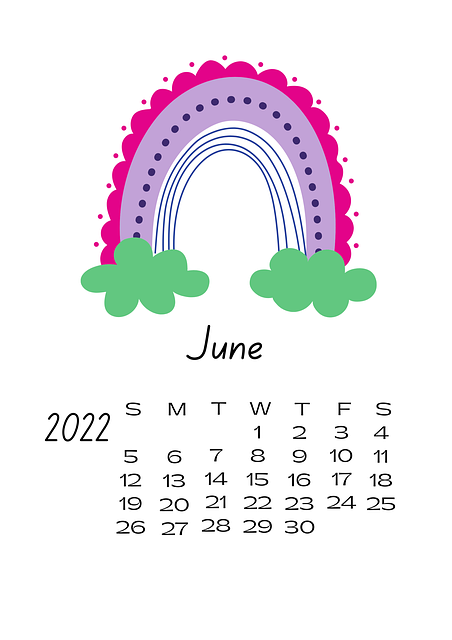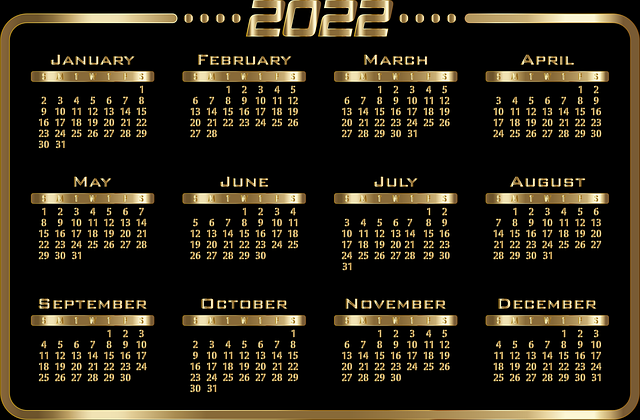The Gregorian calendar, introduced in 1582, reformed the Julian calendar's inaccuracies, aligning with the solar year and standardizing global calendar dates. This revolution improved timekeeping for religious events, vacation planning, and trade, with most countries adopting it globally, making it the dominant civil calendar today.
“Unravel the fascinating history behind the Gregorian calendar’s adoption, a pivotal moment in timekeeping. This article explores the evolution from the ancient Julian calendar, highlighting its shortcomings. Meet Pope Gregory XIII, whose reforms led to a refined system. Discover the gradual implementation across Europe and the global journey toward uniformity. Despite initial resistance, the Gregorian calendar’s widespread acceptance secured its place as the dominant date-keeping standard worldwide.”
- Origins of the Gregorian Calendar
- Issues with the Julian Calendar
- Pope Gregory XIII's Reforms
- Implementation Across Europe
- Global Adoption and Resistance
- Modern Significance and Usage
Origins of the Gregorian Calendar

The Gregorian Calendar, introduced in 1582, was a revolutionary change from its predecessor, the Julian Calendar. The origins trace back to the early 16th century when significant discrepancies in calendar date calculation became apparent. The Julian Calendar, established by Julius Caesar in 45 BC, had an average year length of 365.25 days, but this simple calculation led to a drift of about 10 days over 1,000 years. By the 16th century, this discrepancy had grown to around 10 days as well, causing issues for religious and civic events timing, particularly in calculating Easter dates.
To resolve this, Pope Gregory XIII commissioned a group of astronomers to refine the calendar. Their solution was to modify the leap year rule, which resulted in a more accurate representation of the solar year. The Gregorian reform included dropping 10 days from October 1582 to bring the calendar back in sync with the seasons, and implementing new rules for leap years. This innovative approach not only rectified historical errors but also provided a stable framework for future vacation planning timelines and museum exhibition periods. Visit us at school holiday schedules anytime to experience these changes firsthand.
Issues with the Julian Calendar

The Julian calendar, introduced by Julius Caesar in 45 BC, served as Rome’s primary timekeeping system for centuries. However, it was not without its flaws. One of the main issues was its inaccurate representation of the solar year. The Julian calendar assumed a fixed average length of 365.25 days per year, leading to a gradual shift between the observed and calculated calendar dates. Over time, this discrepancy cumulated, causing the seasons to drift out of sync with the calendar. For example, the vernal equinox, marking the beginning of spring, moved later in the year by about three days every 400 years.
This mismatch posed challenges for various aspects of society. Birthday reminders and book club reading schedules, which once aligned with natural phenomenon timing, became increasingly disconnected. People began to question the calendar’s reliability, especially as the discrepancy between the solar and lunar calendars grew more apparent. This dissatisfaction eventually led to the reform and subsequent adoption of the Gregorian calendar in 1582, aiming to rectify these inaccuracies and ensure better synchronization with the Earth’s orbital period.
Pope Gregory XIII's Reforms

In 1582, Pope Gregory XIII introduced a series of reforms to the calendar, aiming to refine the Julian calendar’s inaccuracies that had accumulated over time. The primary goal was to ensure that the vernal equinox aligned with the date of March 21st, which had shifted in the previous centuries. This led to the creation of the Gregorian calendar, named after Pope Gregory XIII. One of the key changes involved omitting three leap days from every four centuries, preventing the calendar from becoming too advanced relative to the solar year.
These reforms addressed issues that had become increasingly important as society evolved, influencing various aspects like exam date preparation, movie release dates, and vacation planning timelines. By aligning the calendar more closely with the actual solar year, the Gregorian calendar provided a more accurate and reliable tool for measuring time, giving us a call at anniversaries and commemorations to celebrate these significant changes in historical perspective.
Implementation Across Europe

The adoption of the Gregorian calendar wasn’t a uniform process across Europe; it was a gradual transition that took several centuries. Initially, each region followed its own local calendar, leading to variations in the observation of important dates and events. This inconsistency posed challenges for trade, travel, and even religious celebrations, as people struggled with time management and coordinating their activities.
As awareness grew about the need for standardization, especially regarding agricultural planting seasons, European nations began to adopt the Gregorian calendar. The process was catalyzed by the Catholic Church, which played a significant role in its spread. By 1582, most Western European countries had accepted the new calendar, aligning their time zones and dates more closely. Even so, some regions held out for longer, with England and its colonies (including what would become the United States) not adopting it until 1752, while parts of Eastern Europe followed suit even later. Interestingly, a call from restaurant special offers during this period might have been answered differently depending on the calendar a person was using!
Global Adoption and Resistance

The global adoption of the Gregorian calendar was not immediate but rather a gradual process that spanned centuries. Introduced by Pope Gregory XIII in 1582, this solar calendar aimed to refine the Julian calendar’s approximation of the Earth’s orbit, thereby ensuring more accurate calendar dates for religious and civic events. Its implementation began in Catholic countries, with many Protestant nations following suit decades later due to religious differences and varying political dynamics. This transition was not without resistance; some countries, like Britain and its colonies (including those that would eventually become the United States), did not adopt the Gregorian calendar until 1752, leading to a period of dual dating for several years.
Despite initial reluctance, the Gregorian calendar’s practicality in aligning with seasonal changes and scientific understanding of astronomy gradually won over many skeptics. Its consistent use across different regions facilitated international communication, trade, and cultural exchange by standardizing calendar dates for events like art festivals, school holiday schedules, and even museum exhibition periods. Even today, as we navigate global interactions through digital platforms, the Gregorian calendar remains a unifying force, with most countries worldwide following its system, though some still maintain alternative calendars alongside it, reminiscent of past diversities in book club reading schedules.
Modern Significance and Usage

The Gregorian calendar, named after Pope Gregory XIII who introduced it in 1582, has become the most widely used civil calendar worldwide. Its adoption wasn’t merely a change in how we mark time; it revolutionized global timekeeping and synchronization. Today, this calendar is integral to our daily lives, governing everything from personal schedules and vacation planning timelines to international events and business operations across diverse time zones and dates. It ensures consistency and accuracy in coordinating activities, especially with the inclusion of leap years to account for the Earth’s orbital variations.
Beyond its practical application in calendar dates, the Gregorian calendar holds significant historical value. Anniversaries and commemorations often fall on specific dates, adding a layer of cultural and temporal context. Even in modern times, it plays a role in event planning, from organizing local community gatherings to setting deadlines for online ticket sales, as exemplified by finding us at event ticketing deadlines. Its enduring relevance underscores its effectiveness in managing our increasingly globalized and interconnected societies.
The adoption of the Gregorian calendar, initiated by Pope Gregory XIII in the 16th century, marked a significant turning point in timekeeping history. By reformulating the Julian calendar, the new system aimed to address its inaccuracies, particularly in its estimation of the solar year. This overhaul proved pivotal, leading to widespread global acceptance and replacing older calendars across Europe and eventually worldwide. Today, the Gregorian calendar stands as the de facto standard for civil use, facilitating coordinated events and celebrations on a global scale, ensuring accurate calendar dates for modern society.
